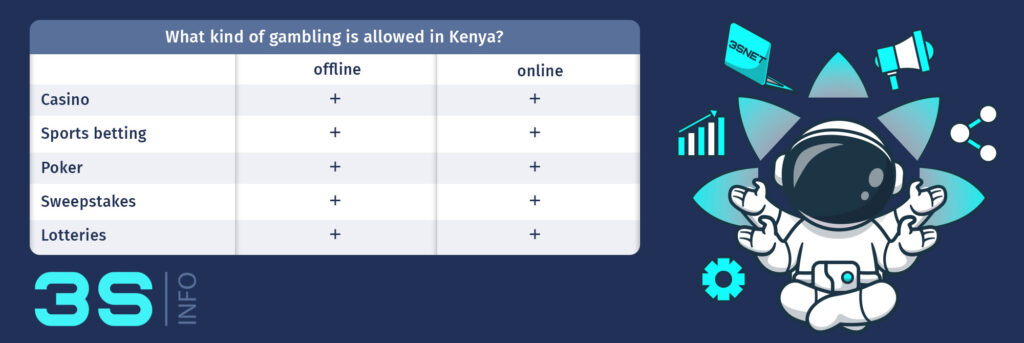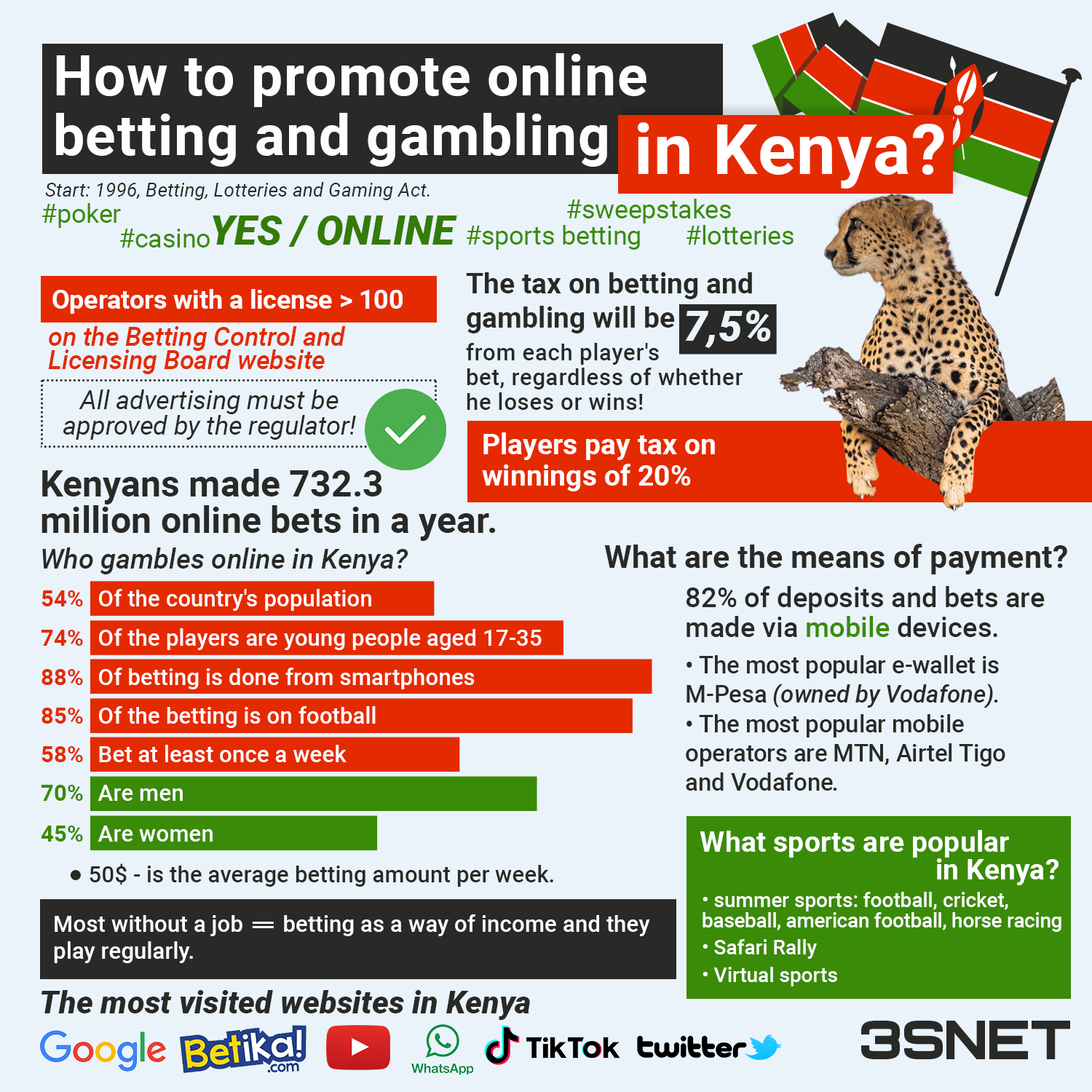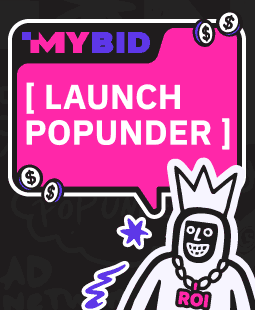
Publication date: 7 September 2023
In September 2023, new figures on the state of the Kenyan gambling market have emerged: the number of new bookmakers and casinos, betting amounts and the sum of funds collected for the budget. Read on!
Kenya was one of the very first countries in the world – more than 55 years ago – to fully legalize all forms of gambling. However, the rapid development of casinos and betting started only a few years ago. Read 3SNET’s review of what led to this development and how to further promote betting and gambling in Kenya.
How is betting and gambling regulated in Kenya?
All casinos and betting shops in Kenya are regulated by the Betting, lotteries and gaming act. The Act was enacted in 1966, with a new version in 2016, amended in 2018 and 2019.
From the beginning, the state went down the road of regulating the market: allowing all gambling and betting activities, but with obtaining permits and collecting taxes.
The law, written more than 55 years ago, is very detailed but has little to do with reality. In fact, there are no requirements in the document for any online gambling activity. It is as if it were a logical extension of land-based operations and nothing more. Consequently, the operation of the land-based sector and the promotion of gambling and betting on online follows the same rules.
What kind of gambling is allowed in Kenya?

Gambling in Kenya is regulated by the Betting Control and Licensing Board (BCLB).
It is a department under the Ministry of Home Affairs and National Government Coordination. The board is governed by the Betting, Lotteries and Gaming Act, Chapter 131 of the Kenya Act.
A license is required to operate legally in Kenya and to attract a Kenyan audience. The legislation makes no distinction between the online and land-based sectors: the operator must obtain the documents and then can both accept sports betting and gaming via the website and on the premises.
A list of betting shops and casinos with a license can be found in the section Licensed operators on the regulator’s website. This lists the name and brand under which the company operates in the market, the license number as well as the address of the website for the provision of online services. As of October 2022, there are 75 operators in the list of licensed betting shops and 50 operators in the list of casinos. Famous brands such as Kwikbet, Betwinner, Betway, Melbet, 1xBet, 888bet have received documents to operate in the Kenyan gambling market.
New! September 2023 brings new figures! There are now 71 companies in the total list of casinos and bookmakers with a Kenyan license, with some having both gambling and betting permits at the same time. Meanwhile, 36 companies are planning to operate online (have a registered website). 11 new operators are on the list, having received documents for 2023-2024.
The cost of obtaining a license depends on the jurisdiction of the company that applied. As an example, for a local operator it would cost 460,000 Kenyan shillings (about $3,800) to get its first bookmaker license, whereas for foreign applicants it would cost 910,000 shillings ($7,500). For local casinos, it is Kshs 4.75 million ($39,000) and for foreign casinos it is Kshs 5.5 million ($45,000). This difference arises in the Investigation Fee point which is the examination of submitted documents and the company’s trustworthiness.
License renewal is Kshs 110,000 to 150,000 for bookmakers and Kshs 525,000 for casinos.
* In October 2022, (approximately) 1 Kshs = 0.5 RUR = 0.008 USD.
Other government agencies that must issue a gaming permit once a license has been granted:
- Kenya Revenue Authority;
- Financial Reporting Centre;
- Interagency Security Group and the country’s Communications Authority.
In May 2022, the BCLB conducted an audit to ensure that all applicants for licenses or renewals were compliant with applicable government requirements. Ultimately, it found that most failed to meet the conditions, so their applications were rejected. This once again confirms the softness and fuzziness of Kenya’s regulated market: operators work quietly without all the required documents.
How are unlicensed casino and betting sites blocked in Kenya?
The fine for running a betting or gambling business without a license (including running illegal sweepstakes) is not more than 10 thousand shillings or imprisonment for not more than 1 year (or both).
Furthermore, under the Betting Act (Part III, Chapter 14), a person who places bets at unlicensed betting shops and casinos, is guilty of an offence and liable to a fine of not more than 5,000 shillings or imprisonment for a term not exceeding 6 months (or both).
As the online betting and gambling sector in Kenya is not prescribed by law, it is unclear who is responsible for blocking an illegally operating website. The regulator only identifies and fines/bans unlicensed operators in general.
The work of the Communications Authority of Kenya relates primarily to the control of television and radio broadcasting. Consequently, there is no clear and established mechanism for blocking local and foreign casino and bookmaker sites in Kenya at the moment.
How much money is the Kenyan gambling market making?
As of 1 July 2022, new tax legislation came into force in Kenya. Under the Finance Act, the excise tax on betting and gambling will be 7.5%. This means that the operator pays on every player’s bet, regardless of whether he loses or wins!
The players pay a 20% tax on winnings. It is withheld immediately by the gambling operators and remitted to the Kenya Revenue Authority (KRA).
There is also a 20% excise tax imposed on gambling advertising.
- Interesting fact! In 2020, Kenya raised the tax on bookmakers and casinos to 20% at once. This led to major market players like Betika, Betway, Odibets, Sportpesa and MozzartBet filing a lawsuit. They argued that 20% from players and 20% from operators meant double taxation. Moreover, operating under such conditions was extremely unprofitable and would force the BCs to withdraw from the market. They lost the court, though a year later, in 2021, after criticism from operators and BCLB, the tax was reduced to 7.5%. In 2022, there was again an initiative to bring back 20%, but it was rejected by lawmakers. This shows that the Kenyan authorities realize: taxes cannot only be raised, they need to be adequately assessed and should help businesses to develop.
In the last financial year (31 March 2021 to 31 March 2022), residents of Kenya made 732.3 million online bets via the M-Pesa* mobile payment system. This is an increase of 39.3% over the previous financial year. The value of the bets was Kshs 169.1 billion (about $1.4 billion). Compared to last year (Sh136.6 billion in bets), the increase was 23.8%.
*Further information on popular payment systems among Kenyan punters can be found below.
New! According to the Kenya Revenue Authority for the year (June 2022 to June 2023), the state received 6.64 billion shillings (about USD 45.5 million) in revenue for the year (June 2022 to June 2023). This amount was paid by gaming firms thanks to a new 7.5% tax on wagered amounts.
This means Kenyans bet 242 million shillings (USD 16,500) daily, 10.1 million shillings hourly, 168,333 shillings minute by minute or 2,806 shillings every second.
Casino and bookmaker advertising rules in Kenya
In July 2021, the Betting Control and Licensing Board of Kenya established new rules for gambling advertising:
- only licensed operators are allowed to place any casino or bookmaker advertisements;
- the advertisement must include the license number and the phrase “authorized and regulated by the Betting Control and Licensing Board”.
- all advertisements must be approved in advance by the regulator;
- each advertisement (20% of the content) must include information about responsible gaming and prohibit people under 18 years of age from participating
- the regime for display of online casino and betting advertisements has been introduced: from 6.00 am to 4.00 pm responsible gambling information may be shown, from 4.00 pm to 9.00 pm all advertisements are prohibited, from 9.00 pm to 6.00 am gambling advertisements are allowed in Kenya.
- advertising is prohibited during children and family shows as well as religious programs.
These rules cover all gambling advertising in Kenya, there are no separate requirements for website promotion and online advertising.
Incidentally, since gambling and betting advertising is legal in Kenya, Google is also allowed to run an advertising campaign using its services.
What is interesting is the penalty system that is in place for violations of gambling advertising in Kenya:
- The penalty will only apply to a person (a well-known personality) who promotes an unlicensed bookmaker or “otherwise personally asks for the patronage of members of the public”. The individual will be found guilty of an offence and fined up to 2,000 shillings or imprisoned for up to 2 months.
- A fine of up to 3,000 shillings and a penalty of up to 3 months in jail can be imposed on a person who engages in any advertisement (including by licensed operators) that is distributed without the permission of the regulator.
How to attract Kenya’s audience to betting and casino sites?
The Republic of Kenya is one of the fastest growing nations in East Africa. It has a population of over 47 million. Generally, it is a country with a great variety of culture and religion.
Until 1963 (for 73 years) Kenya was a British colony, therefore:
- English is very widely spoken in the country; government documents are published and schools are taught in it. Swahili is also the official language.
- European sports such as rugby, football, basketball, volleyball, tennis and athletics are popular among Kenyans.
The official currency is the Kenyan shilling (kshs).
As in South Africa, a huge advantage for the development of gambling in Kenya has been massive digitalization: the internet access and the advent of smartphones.
50% of the population have internet in this or that way, which is especially important considering that Kenya is an agrarian country with many hard-to-reach areas.
Similarly, this has been the reason for the rapid development of the online sector: it has become feasible to gamble via smartphones during the COVID-19 quarantine and the closure of land-based establishments.
- If you’re wondering what’s going on with gambling in South Africa and how to promote betting and gambling in South Africa, read 3SNET’s special review.
Who gambles online in Kenya?
According to GeoPoll (end of 2019), a total of around 54% of the country’s population participates in gambling. Meanwhile, in Kenya, 74% of players are young people between 17 and 35 years old. Kenya leads neighbouring countries Ghana, Nigeria, Tanzania, Uganda and South Africa in this indicator.
- 88% of bets are placed from smartphones;
- 85% of all daily betting in the country is made on football;
- 70% of active gamblers are men and 45% are women;
- 58% of Kenyan players bet at least once a week;
- $50 is the average amount per week spent in Kenya on sports betting or casino games.
As noted in the study, the continent, including Kenya, has the youngest population in the world, about 60% are under the age of 25. Furthermore, most of them do not have a stable job, so they see betting in BCs or casino games as a way of income and that’s why they play on a regular basis.
What payment methods do Kenyan players choose?
According to a GeoPol survey (end of 2019, among 18-35 year old players), 82% of all gambling payments in Kenya were made via mobile devices. This is the most common payment method as banks often face a ban on accepting online payments for gambling operators.
- The most popular e-wallet in Kenya is M-Pesa (owned by Vodafone).
- The most popular mobile operators for payments for sports betting or casino games are MTN, Airtel Tigo and Vodafone.
What sports are popular in Kenya?
- Historically, the most popular sports in Kenya have been “summer sports”: football (especially the Kenya, England and Spanish Premier Leagues and competitions involving local teams), basketball (NBA competitions), cricket and American sports (baseball, American football).
- Horse racing is very popular, especially among young people. The most famous are at the Ngong Race Course in the city of Ngong, run by the Jockey Club of Kenya.
- Kenya is the venue for the annual Safari Rally, part of the African Rally Championship. For other Kenya-related sporting events, look out for the 3SNET Sporting Events Calendar.
- Virtual sports are gradually attracting more Kenyans and the ESports Kenya Federation is active.
What are the most visited websites in Kenya?
According to Statista service, in November 2021 (report published on 1 August 2022, no more recent data available) Google.com is ranked as the most visited website in Kenya with a total number of over 90 million visits. Facebook is in second place with 33.3 million visits, followed by Betika.com betting platform in third place with 23.4 million visits. YouTube completes the ranking of the most popular websites in Kenya.
About 12 million Kenyans use social media daily. The most popular are WhatsApp messenger, Facebook, Instagram, TikTok and Twitter.
Kenya is one of the most gambling countries in East Africa. Weak regulation gives access to the online betting and gambling market to both global brands and lesser-known operators. The country has the most active audience: young people who are willing to gamble and bet on a daily basis. Although these may be small bets, these players are the ones who bring the bookmakers and casinos a steady income. The 3SNET network has prepared the top betting and gambling offers where quality traffic from Kenya is expected.

Share it with your friends via favorite social media





























